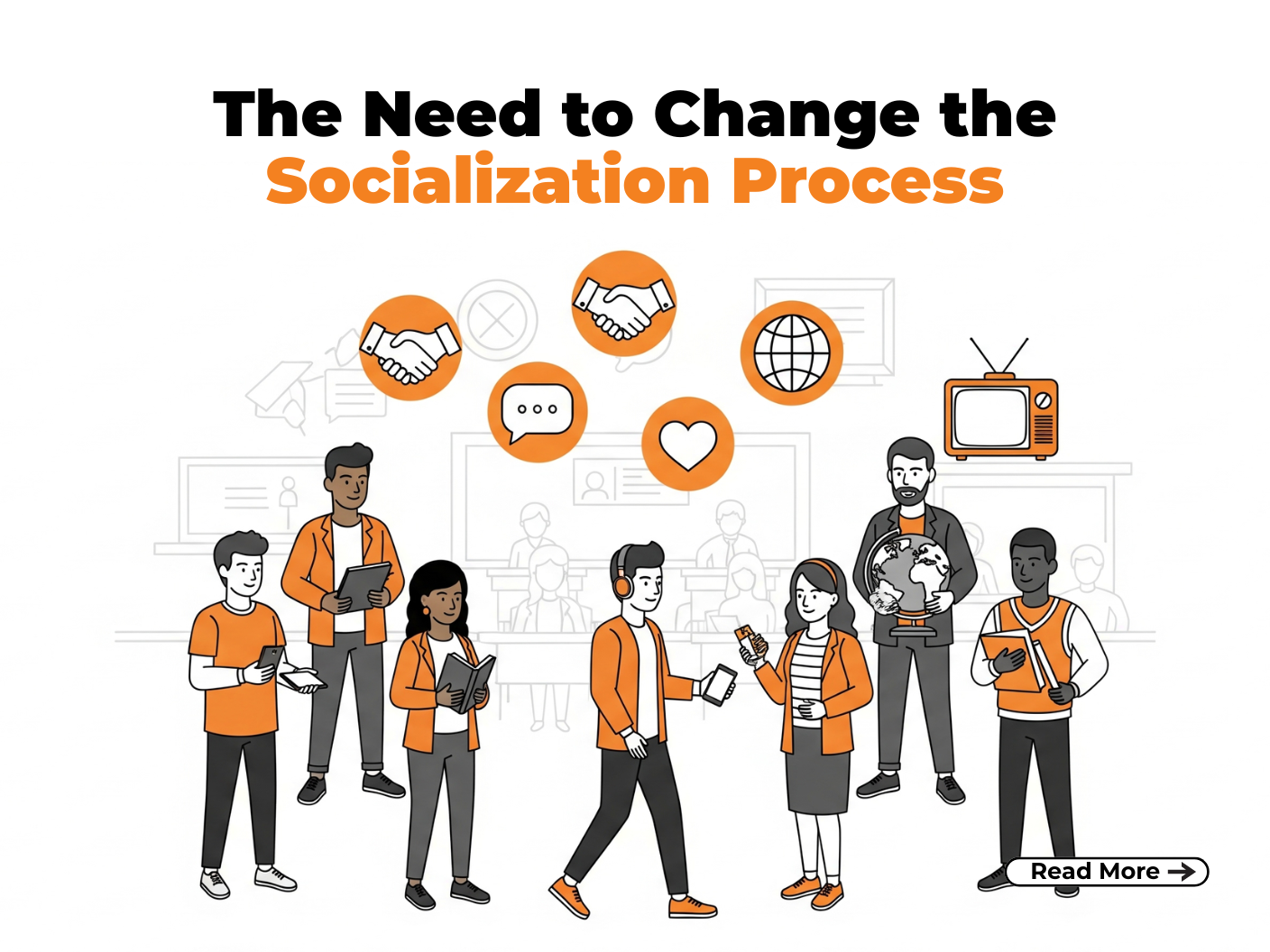- How M.A. Psychology Shapes Your Future
- Overview of the M.A. Psychology Program
- Skills You Gain During the Course
- Career Options in Counselling Psychology
- Careers in Industrial-Organizational Psychology
- Roles in Educational and Child Psychology
- Opportunities in Research & Academia
- Psychology Careers in Healthcare & Rehabilitation Centers
- Entrepreneurship & Private Practice
- Conclusion
- Frequently Asked Questions (FAQs)
How M.A. Psychology Shapes Your Future
An M.A. in Psychology is more than just an academic qualification; it is a transformative journey that equips you with a deeper understanding of the human mind and behaviour. In an era where emotional intelligence, mental health awareness, and behavioural science are becoming increasingly important, this degree offers powerful tools for both personal growth and professional advancement.
The career after M.A. Psychology is incredibly diverse. Graduates can pursue roles as clinical psychologists, counsellors, HR specialists, organizational behaviuor consultants, researchers, educators, or even enter fields like user experience (UX) design and digital marketing, where psychological insights are in high demand. Those interested in further specialization can also continue with an M.Phil or PhD, leading to advanced roles in academia or psychological research.
- Looking ahead, the future of M.A. Psychology is brighter than ever. With increasing stress levels, social complexities, and mental health challenges across populations, the need for qualified mental health professionals is growing rapidly.
- Government initiatives, corporate wellness programs, and education reforms are also contributing to a broader acceptance and application of psychological services. This makes psychology not just a meaningful field, but one with strong job security and societal impact.
- The psychology postgraduation benefits are not limited to employability. Postgraduates develop advanced skills in critical thinking, empathy, communication, and problem-solving qualities that are essential in any professional setting.
- Moreover, the degree nurtures a sense of purpose, helping individuals contribute meaningfully to communities, workplaces, and individual lives.
- Choosing to pursue an M.A. Psychology is an investment in a future filled with purpose, versatility, and growth.
- The degree not only opens up a wide range of career opportunities after M.A. Psychology, from clinical practice to corporate consultancy, but also places you at the heart of one of the most impactful and evolving fields of our time.
Beyond the job prospects, the psychology postgraduation benefits, such as enhanced self-awareness, empathy, and critical thinkin,g empower you to make a meaningful difference in both personal and professional spheres. Whether you’re aiming to support individuals in crisis, shape organizational culture, or drive research that informs public policy, your journey with psychology sets the foundation for a career that truly matters.
Overview of the M.A. Psychology Program
The M.A. Psychology course overview presents a dynamic and interdisciplinary postgraduate journey that explores the science of behaviour and mental processes in depth.
This psychology postgraduate program is carefully designed to help students transition from a foundational understanding of psychology (typically acquired during undergraduate studies) to advanced theoretical, analytical, and applied knowledge that can be directly used in diverse professional settings.
The M.A. Psychology is typically a two-year full-time program, divided into four semesters. Some universities also offer part-time or distance learning options. The structure of the program ensures a gradual and coherent progression from core psychological concepts to specialized and applied areas.
The M.A. Psychology curriculum begins with core subjects that establish a strong academic foundation. These may include:
- Cognitive Psychology – Understanding perception, attention, memory, and problem-solving processes.
- Social Psychology – Exploring how individuals think, feel, and behave in social contexts.
- Developmental Psychology – Studying human growth and changes across the lifespan.
- Theories of Personality – Analyzing different frameworks that explain individual differences.
- Research Methods & Statistics – Equipping students with tools to design, conduct, and analyze psychological research.
- Psychopathology – Examining mental disorders, their causes, symptoms, and treatment approaches.
As a specialized psychology postgraduate program, the M.A. typically spans two years and is divided into four semesters. It covers a wide range of core and elective subjects, allowing students to tailor their learning experience based on their career goals and interests.
The M.A. Psychology course overview reflects a robust and flexible program that not only deepens your academic knowledge but also prepares you for real-world challenges.
Whether your interest lies in therapy, research, organizational development, or education, this psychology postgraduate program provides the foundation and direction you need to build a meaningful and successful career.
Skills You Gain During the Course
The skills from M.A. Psychology go far beyond theoretical understanding they encompass a wide range of practical, analytical, interpersonal, and ethical competencies that prepare students for real-world applications across multiple sectors. Throughout the program, students develop a holistic skill set that supports not only career success but also personal growth and social impact.
A major focus of the M.A. Psychology curriculum is on research methodology and data interpretation. Students learn how to design experiments, collect and analyze data using statistical tools, and evaluate psychological theories critically.
- Conducting psychological research
- Quantitative and qualitative data analysis
- Hypothesis testing and scientific writing
Effective communication is central to all psychological work, whether it involves therapy sessions, interviews, assessments, or team collaboration.
- Active listening and empathy
- Conflict resolution and negotiation
- Written and verbal communication skills
One of the unique skills from M.A. Psychology is the development of emotional insight — the ability to understand and regulate one’s own emotions, while being attuned to others.
A strong ethical foundation is emphasized throughout the course, teaching students to respect confidentiality, diversity, and professional boundaries.
Graduating with an M.A. Psychology means stepping into the world with a rich set of intellectual, emotional, and practical tools. From critical thinking and emotional intelligence to ethical judgment and scientific reasoning, the key psychology competencies developed during this course prepare you for diverse career paths and make you a more effective, empathetic, and insightful individual in any professional setting.
The skills from M.A. Psychology go far beyond academic theory; they prepare students to think critically, communicate effectively, and respond ethically to real-world challenges. From research and data analysis to counselling techniques, emotional intelligence, and psychological assessment, the psychology graduate skills acquired during the program are essential across various sectors, including healthcare, education, corporate, and social services.
Career Options in Counselling Psychology
A specialization in Counselling Psychology opens the door to a wide range of meaningful and impactful career paths. Focused on promoting mental well-being, emotional growth, and personal development, the counselling psychology career offers diverse roles in both clinical and non-clinical environments.
With increasing awareness around mental health, the demand for trained professionals continues to grow, expanding the M.A. Psychology counselling scope across various sectors.
1. Mental Health Counsellor
One of the most direct and in-demand jobs in counselling psychology, mental health counsellors work with individuals, couples, and groups to address issues like anxiety, depression, trauma, stress, and relationship problems.
2. School and Academic Counsellor
School counsellors support students’ emotional, academic, and social development. They help with learning difficulties, peer relationships, and career guidance, making this one of the most fulfilling counselling psychology career options for those interested in the education sector.
3. Career Counsellor
Career counsellors guide individuals through career decisions, helping them align their strengths, interests, and values with suitable job opportunities. They work with students, professionals, and career changers.
4. Rehabilitation Counsellor
Rehabilitation counsellors help people with physical, emotional, or mental disabilities lead independent and fulfilling lives. This role is central to recovery-focused treatment plans and community integration.
5. Crisis Intervention Specialist
Trained to handle emergency psychological situations, these professionals offer immediate support during crises such as trauma, domestic violence, or suicidal ideation.
The M.A. Psychology counselling scope is expanding rapidly due to increasing mental health awareness, policy support, and institutional demand. Whether you choose to work in healthcare, education, corporate settings, or community outreach, the field offers strong job stability, personal satisfaction, and the chance to make a real difference in people’s lives.
Additionally, after gaining experience, professionals can pursue further certification or licensing (e.g., RCI, rehabilitation licenses, or Ph.D. programs) to unlock higher-level positions in clinical psychology, supervision, or teaching.
Careers in Industrial-Organizational Psychology
Industrial-Organizational (I/O) Psychology focuses on applying psychological principles to workplace settings to improve employee well-being, enhance productivity, and optimize organizational performance. With businesses increasingly prioritizing mental health, leadership development, and organizational culture, IO psychology careers are gaining strong traction across sectors.
Whether you are interested in employee behaviour, team dynamics, or performance management, this field offers diverse and evolving industrial organizational psychology jobs that combine psychology with business strategy.
I/O psychologists in HR roles apply psychological tools to recruitment, employee assessment, and workforce planning. They help identify talent, create fair selection processes, and align hiring with organizational values.
- The professionals work on enhancing the overall efficiency of organizations. They lead change management projects, restructure teams, and design development programs.
- Focused on employee learning and growth, this role involves designing training modules, evaluating performance, and coaching employees or leadership.
- The role deals with resolving workplace conflicts, promoting job satisfaction, and supporting employee engagement initiatives. It’s one of the key psychological aspects in workplace roles that bridges the gap between employer and employee needs.
- I/O psychologists in this role use data-driven approaches to evaluate individual and team performance. They identify performance gaps and recommend strategies for improvement.
- With mental health becoming a priority in organizations, many companies now hire I/O psychologists to design wellness initiatives, conduct stress management workshops, and create healthier work environments.
- Many I/O psychologists take on analytical roles that focus on workplace behaviour trends. They conduct surveys, analyze organizational behaviour, and present actionable insights to management.
Ultimately, the integration of psychology in workplace environments not only drives business success but also fosters healthier, more human-centered workspaces. With the right skills and mindset, a career in I/O psychology can position you at the intersection of people and performance where real change begins.
Roles in Educational and Child Psychology
Educational and child psychology focuses on understanding how children and adolescents learn, grow, and cope with emotional, behavioural, and developmental challenges. Professionals in this field apply psychological principles to support students’ learning, mental health, and overall development in academic and social environments.
As awareness of mental health and inclusive education grows, so does the demand for qualified professionals — making child psychology careers and educational psychology jobs both relevant and rewarding in today’s educational landscape.
School psychologists assess students’ emotional and learning needs, provide counselling, and collaborate with teachers and parents to create a supportive learning environment. This is one of the most direct and in-demand educational psychology jobs in both public and private school systems.
- Child psychologists work more broadly with children outside of just school environments, addressing emotional, developmental, and psychological issues. This is one of the most impactful child psychology careers for those who want to work closely with families and healthcare providers.
- Educational counsellors guide students in academic planning, emotional support, and career decisions. They serve as an important bridge between students, parents, and school staff.
- Special Education Needs (SEN) professionals work with children who have learning difficulties, disabilities, or developmental disorders. They collaborate with educators to adapt teaching strategies to individual needs.
- Developmental Psychologists (Early Childhood) study and support development from infancy through adolescence, often working in early intervention programs, daycare centers, or pediatric settings.
As awareness of mental health and inclusive education grows, the relevance of psychology in the education sector continues to expand, offering a wide range of opportunities for psychology graduates to make a meaningful difference in the lives of young learners.
The field of educational and child psychology offers a deeply rewarding path for those passionate about child development, learning, and emotional well-being. With growing recognition of the importance of mental health in academic settings, both child psychology careers and educational psychology jobs are becoming increasingly vital across schools, clinics, and community organizations.
Opportunities in Research & Academia
The fields of research and academia represent some of the most intellectually stimulating and impactful avenues for psychology postgraduates. For those who are curious, analytical, and passionate about advancing psychological science, research careers in psychology offer the opportunity to explore topics such as mental health disorders, cognitive processes, developmental patterns, social behaviour, and therapeutic effectiveness.
Psychologists in research roles work in universities, think tanks, government bodies, hospitals, and private research organizations. Their work involves designing experiments, conducting surveys or clinical trials, analyzing complex data, publishing findings, and influencing policy or practice through evidence-based insights.
Parallel to research, the academic field offers rewarding academic psychology opportunities where professionals educate, mentor, and inspire the next generation of psychologists.
A typical psychology lecturer’s career involves delivering lectures, leading seminars, supervising student research, developing curriculum content, and contributing to institutional growth. With higher qualifications like an M.Phil. or Ph.D., professionals can pursue positions as assistant professors, associate professors, or senior researchers, and even move into administrative or advisory roles.
- LPU has recently launched an RCI‑approved M.A. Clinical Psychology programme. This means graduates can become licensed clinical psychologists under the Rehabilitation Council of India, which adds professional recognition for clinical practice.
- This path not only provides job stability and respect but also the chance to make a long-term contribution to the understanding and betterment of human life.
- With continued education, such as an M.Phil. or Ph.D., psychologists can also move into senior academic roles, including department heads or research directors. In a world where mental health and human behaviour are gaining increasing attention, the demand for skilled researchers and educators is rising, making this an exciting and impactful avenue for postgraduate psychology graduates.
| Did You Know?
LPU psychology students engage in fieldwork at schools, clinics, and NGOs as part of their curriculum — providing practical exposure that strengthens their path toward educational psychology jobs and real-world impact. |
Psychology Careers in Healthcare & Rehabilitation Centers
Psychology professionals play an indispensable role in healthcare and rehabilitation settings, where the focus extends beyond physical healing to encompass emotional and mental well-being.
Psychology healthcare jobs are increasingly vital as hospitals, clinics, and specialized rehabilitation centers recognize the importance of addressing psychological factors that influence recovery outcomes.
Psychologists in these environments conduct detailed assessments to identify mental health disorders, cognitive impairments, and emotional challenges that may arise due to illness, injury, or chronic conditions. Among these roles, clinical psychology opportunities are prominent, involving the diagnosis and treatment of mental health issues such as depression, anxiety, PTSD, and substance use disorders through evidence-based therapies.
- Additionally, psychologists in rehabilitation settings specialize in rehabilitation psychology careers, helping patients cope with life-altering injuries, neurological disorders, or disabilities by fostering resilience, adapting to new limitations, and improving quality of life.
- At Lovely Professional University (LPU), students pursuing psychology—especially through the RCI-approved M.A. Clinical Psychology program—are well-prepared for impactful careers in healthcare and rehabilitation settings.
- This program equips graduates with essential clinical skills through supervised field training in hospitals, mental health clinics, and rehabilitation centers, which lays a strong foundation for both psychology healthcare jobs and rehabilitation psychology careers.
- LPU has also signed MoUs with numerous hospitals and medical establishments, offering students real-time exposure to patient care, case management, and psychological assessment.
- As mental health awareness and integrated rehabilitation services continue to grow in India and abroad, LPU graduates are uniquely positioned to enter a fast-expanding field with confidence, skill, and professional accreditation.
| Did You Know?
Students at LPU gain hands-on training in real healthcare and rehabilitation settings through partnerships with multiple hospitals, preparing them for real-world rehabilitation psychology careers. |
Entrepreneurship & Private Practice
As the demand for mental health services continues to grow, many psychology professionals are carving out their own paths through private practice psychology and entrepreneurial ventures.
With the right qualifications and licensing—such as completing an RCI-approved M.A. Clinical Psychology—graduates can set up independent therapy or counselling practices, offering services in areas like clinical therapy, child counselling, marital therapy, or behavioural interventions.
- Entrepreneurship in psychology goes beyond traditional therapy settings; psychologists today are launching mental wellness startups, developing mental health apps, offering corporate wellness programs, or creating online counselling platforms. These ventures cater to a wide audience, from individuals seeking therapy to organizations investing in employee well-being.
- The rise of teletherapy and mental health apps has further expanded opportunities for psychologists to launch digital ventures, reaching clients across geographic boundaries. In addition to traditional one-on-one sessions, self-employed psychologists’ careers can include group therapy, wellness workshops, corporate training, school counselling services, and consultancy for NGOs or educational institutions.
- Some psychologists establish their own mental wellness centers or clinics, while others create content-based businesses—developing courses, writing books, or curating psychological assessment tools.
- Institutions like LPU foster this spirit of independence by integrating soft skill development, digital tools, and practical business knowledge into their psychology programs, helping students understand both the clinical and operational sides of running a practice.
- In today’s evolving mental health landscape, psychology professionals are no longer limited to clinical or academic roles.
- With the right skills and vision, they can build thriving careers through private practice psychology or launch innovative ventures that meet the growing need for accessible mental health services.
- As entrepreneurship in psychology gains momentum, professionals are finding creative ways to offer therapy, training, and wellness solutions—both offline and online.
For those who value autonomy, impact, and flexibility, self-employed psychologist careers offer a fulfilling path to make a difference on their own terms. With the right education, such as LPU’s practical and forward-thinking psychology programs, graduates are well-equipped to succeed as independent practitioners and mental health entrepreneurs in a rapidly growing industry.
For those with a passion for mental health and a drive for innovation, the world of psychology offers vast potential to grow as both a professional and an entrepreneur.
Conclusion
In today’s complex and fast-evolving world, the relevance of psychology has never been greater. As a postgraduate qualification, the M.A. Psychology not only deepens theoretical understanding of human behaviour, cognition, and emotion but also equips students with essential practical skills like counselling, assessment, research, and communication.
This conclusion on M.A. Psychology careers underlines the growing range of pathways available to graduates—from becoming clinical psychologists, counsellors, and school psychologists to taking roles in corporate HR departments, NGOs, and government policy think tanks. Additionally, research and academic roles remain in demand for those interested in teaching and advancing psychological knowledge.
- The future prospects for psychology graduates are brighter than ever, thanks to rising mental health awareness, growing institutional support, and increasing global demand for qualified professionals in both public and private sectors.
- Digital transformation has also opened up new opportunities in teletherapy, mental health apps, online education, and entrepreneurial ventures.
- As a summary of psychology career paths, it is evident that the degree offers unmatched versatility—supporting careers that are not only professionally stable and respected but also personally fulfilling and socially impactful.
- Whether you’re aiming for a career in clinical psychology, education, corporate consulting, research, or private practice, LPU’s academic ecosystem supports diverse ambitions through practical learning, expert faculty, and placement assistance.
- The university’s focus on interdisciplinary learning, mental wellness, and entrepreneurship also prepares students to adapt to emerging trends in the mental health sector. For aspiring psychologists seeking both academic depth and career flexibility, LPU offers the right blend of opportunity, support, and future readiness—making it an ideal launchpad for a successful and impactful career in psychology.
Lovely Professional University (LPU) stands out as a forward-thinking institution for students pursuing an M.A. in Psychology.
With its cutting-edge curriculum, RCI-approved clinical psychology program, hands-on training in hospitals and rehabilitation centers, and exposure to real-world psychological practice, LPU empowers students to build strong, industry-relevant skills.
Whether one chooses to work in healthcare, education, research, or private practice, an M.A. in Psychology serves as a powerful foundation for a meaningful, future-ready career.
Frequently Asked Questions (FAQs)
- Is the M.A. Clinical Psychology program recognized by the RCI?
Yes. LPU’s M.A. Clinical Psychology is RCI-approved, which is essential for students who wish to become licensed clinical psychologists in India.
2. Can I pursue a Ph.D. after completing M.A. Psychology from LPU?
Absolutely. LPU offers a Ph.D. in Psychology for those interested in academic or research careers. M.A. graduates with strong academic records and research interest are eligible to apply.
- Does LPU support students interested in entrepreneurship or private practice?
Yes. The program includes soft skill development, business communication, and entrepreneurship workshops that prepare students for self-employed psychologist careers and private practice.
- Are there placement opportunities for psychology students at LPU?
Yes. LPU has a dedicated placement cell that assists psychology students in finding internships and jobs in hospitals, clinics, schools, NGOs, and corporates.
- Is distance or online learning available for M.A. Psychology at LPU?
Yes. LPU also offers distance education (ODL mode) for M.A. Psychology through its Directorate of Distance Education (LPU-DE), approved by UGC.




![Career Paths After B.Sc. Information Technology [Lateral Entry] Career Paths after B.Sc. Information Technology [Lateral Entry]](https://www.lpu.in/blog/wp-content/uploads/2026/01/Career-Paths-after-B.Sc_.-Information-Technology-Lateral-Entry-218x150.png)









